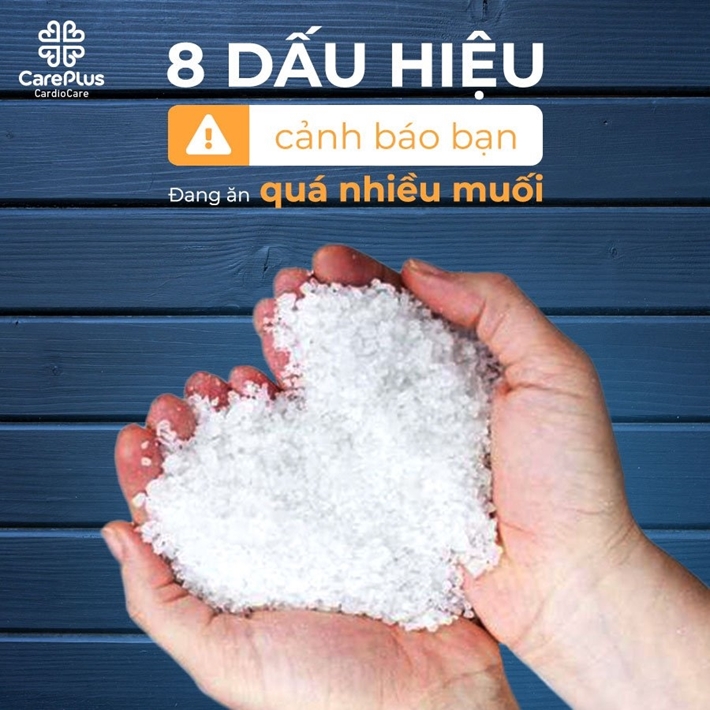8 serious signs that you are consuming too much salt
The amount of sodium chloride in the diet should be less than 6 grams/day, which means one teaspoon of table salt used for seasoning in all foods for a whole day. However, the reality is that most of us quickly eat more salt than this without realizing it.

6/7/2021 11:46:47 PM
Eating more salt than the recommended 6g/day has been linked to high blood pressure and heart disease. For people who already have heart disease, compliance with salt intake is very important because it affects the effectiveness of treatment drugs and increases the risk of acute complications such as acute heart failure and high blood pressure. For healthy people, it is necessary to maintain a healthy diet to reduce the risk of cardiovascular disease.
HIGH SALT FOOT THAT PEOPLE SHOULD AVOID
Processed foods, including fast food (fried chicken, pizza, french fries), dry foods (such as canned food, dried meat, dried fish, cotton balls), and fermented foods with a lot of salt such as fish sauce, shrimp paste. (Imagine one slice of Pizza has provided about 3g of salt, which is 50% of the allowable salt in the cardiovascular diet for a day.)
However, accurately monitoring the amount of salt used in the diet every day and changing binge eating habits for people with cardiovascular disease is challenging to apply. Therefore, Dr. Phung Ngoc Minh Tan - Cardiology Department, CarePlus International Clinic System, advised eight signs that you are consuming more salt than recommended:
1. High blood pressure
The most critical sign. You can measure yourself at home in the morning, high blood pressure readings when more significant than 140/90 mmHg.
2. Water retention in the tissues
Eating a lot of salt causes water retention in the tissues, so you may feel heavier and more swollen eyelids after waking up. Also, the ring finger is tighter. The ankle or the whole foot swollen, sometimes pressing with the hand can leave a slight indentation.
3. Urinating
Eating a lot of salt can make you pee more. After a high-salt meal, urine tends to darken, look thicker, and have a more pungent odor.
4. Thirsty
You feel that your mouth is drier, your lips are also dry, you want to drink more water, you still feel thirsty after drinking.
5. Gain Weight
Cardiovascular patients, especially heart failure patients, should weigh themselves every day to monitor the water balance in the body. Sudden gains of more than 1kg/day or over 2kg/week are signs that you need to review your diet for excess salt.
6. Sleep disturbance
Eating salt reduces the quality of sleep: difficulty falling asleep, waking up in the middle of the night, nocturia, feeling tired, dizzy when waking up.
7. Digestive disorders
Feelings of bloating, indigestion, and even abdominal pain may increase with high salt intake.
8. Feeling "addicted" to salt
Some people eat salt the more they crave salt until they realize it's almost impossible to eat without salt, fish sauce, and soy sauce. They even eat no salt or eat fruit with a lot of salt. The above are signs that suggest you may be consuming more salt than is beneficial for your heart health. It is also possible that this comes from other diseases than just eating salt.
When you have these signs, you should review your previous meals whether you have overeaten salt, try to drink enough water (except in case of edema), consult your doctor. Most importantly, adjust the diet in the direction of reducing salt.